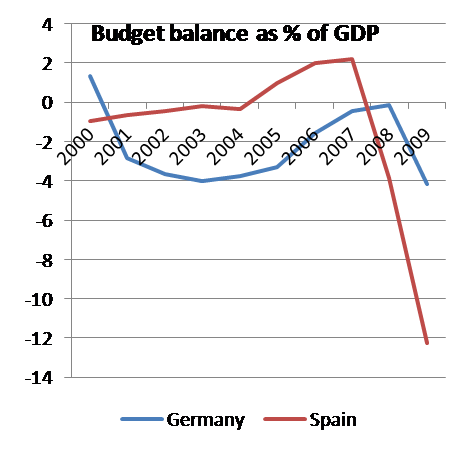here, check this thing out. It may not be perfect, but it should help you to understand:
http://econviz.com/bsexplorer.html
http://econviz.com/bsexplorer.html
The difference between assets and liabilities is balance sheet equity (also called net worth)
well to start with, that "equity" should be called Capital or K
edit: or at the disaggregated level "net worth"
Krugman has a good summary of the PIIGS issue up:
http://krugman.blogs.nytimes.com/2010/02/09/anatomy-of-a-euromess/

Meanwhile, things could be worse. And in Latvia, they are: real GDP down 18 percent. Unlike Spain, which I’ve been obsessing about, Latvia isn’t in the eurozone. But its determination to keep a fixed exchange rate against the euro lies behind the catastrophe.
this stiglitz cage match on Greece is pretty entertaining:
God that Scottish guy was a smug prick. Though I kind of thought he was right, as far as I can tell
